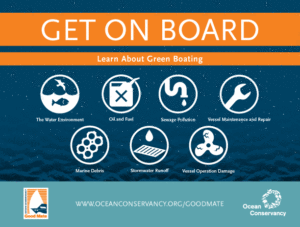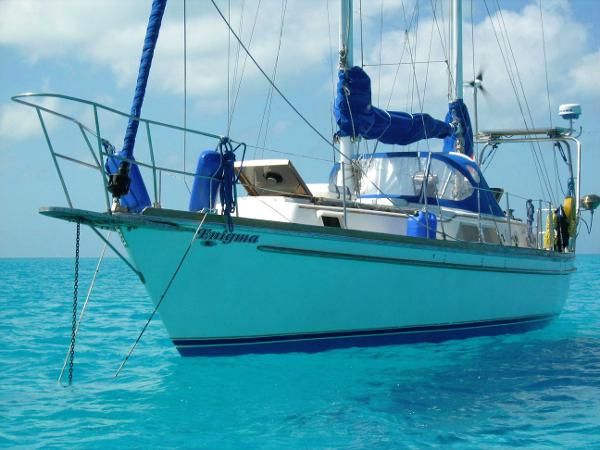“Most boaters are concerned about the health of the ocean and want to learn more about how they can protect Florida waterways,” says Dustyn Shroff, Vice President of GreatFlorida Insurance, Florida’s largest independent boat insurance agency.
Ocean conservation group, Sailors for the Sea have produced a guide with suggestions on how to boat cleaner. Their eco-tips apply to boaters with small sailboats to those with large mega-yachts. Suggestions range from sustainable maintenance to efficient boat operation. Some of their recommendations are listed below.
Waste disposal and recycling-Plastic waste is one of the largest threats to our oceans and marine life. The world produces 300 billion pounds of plastic each year, 10 percent ends up in the ocean according to sustainability website, EverythingConnects.org. Some simple changes can help improve on healthy waters.
- Utilize reusable containers
- Remove product packing before you go board your boat.
- Never throw trash overboard.
- Encourage your marina to provide recycling facilities.
Spillproof Fueling – Filling up fuel tanks is one of the most common ways we unintentionally pollute our waters.
- Maintain your fuel lines and fuel tanks to avoid, cracks, leaks, corrosion or damage.
- Know the capacity of your fuel tanks or portable container.
- When fueling, turn off the engine, electronics and extinguish any open flame.

- Place an absorbent bib or collar around the fuel intake.
- Keep the nozzle in contact with the edge of the fill to prevent the build-up of static electricity.
- Fill your tank slowly and allow some room for expansion. Boat fuel tanks are not pressurized like car fuel tanks, so the automatic shut-off nozzle rarely works.
Reduce Fuel Usage – How you operate your vessel can significantly affect how much fuel you use. “Performing routine engine maintenance and repairs can prevent leaks preventing pollution and improve fuel efficiency,” says Buck with GreatFlorida Insurance, Florida’s top independent boat insurance agency.
- Using trim tabs and power trim carefully prevents plowing and reduces drag
- Check your wake, a large wake indicates your boat is trying to climb the water’s surface and is using extra power and fuel.
- Look at your exhaust, a well-maintained diesel engine should produce virtually invisible exhaust.
- Black exhaust- the engine is overloaded
- White exhaust- you have an injector or valve timing problem
- Blue exhaust- oil is in the combustion chambers
Anchoring-Poor anchoring techniques can disturb or damage shellfish beds, coral reefs or sea grass habitats, while the proper skills can preserve aquatic habitats and wildlife.
- Use existing mooring buoys if available
- Anchor in deep water to avoid grounding your vessel in tide changes.
- Anchor in sand or mud to avoid vital ecosystems
- If anchoring ashore, avoid sand dunes and don’t tie your rope to a tree.
- When retrieving your anchor, motor slowly toward the anchor and retrieve the line when it is vertical
- An old mariners saying about the color of water can give you an indication of what is below
- Brown, brown run aground
- White, white you just might
- Green, green nice and clean
- Blue, blue cruise on through
No matter what type of vessel you own, GreatFlorida Insurance can provide you with the boat insurance you need. Fill out free quote request online.




